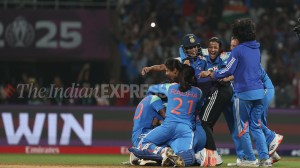Israeli experts slam handling of hostage crisis
Israeli counter-terrorism experts have slammed the way India handled the hostage crisis in Mumbai, especially at Nariman House where Jewish people were taken captive, saying the "colossal failure of intelligence" and slow operation meant there was "no chance" of rescue.

Israeli counter-terrorism experts have slammed the way India handled the hostage crisis in Mumbai, especially at Nariman House where Jewish people were taken captive, saying the “colossal failure of intelligence” and slow operation meant there was “no chance” of rescue. Eight Israeli hostages at Nariman House were found dead by commandos after they stormed the building sieged by terrorists.
The experts said Israel has never experienced a coordinated attack of such magnitude. However, India failed to contain the attacks and raided Nariman House too “lackadaisically”.
“When terrorists attack several places simultaneously, it’s difficult to handle. However, the difficulty was compounded by the lack of prior intelligence. This was an organisation in which dozens of people were surely involved,” Major General David Tzur, a former commander of the police’s counter-terror unit Yamam, told the daily Ha’aretz.
“To the Indians’ credit, they were determined and sought contact (with the enemy) all the time,” Tzur told the daily, adding that a terrorist takeover of a hotel is “the nightmare of every counter-terrorism unit,” because it is hard to effectively “cleanse” so large a site.
Being critical of the operation at Nariman House where he dubbed the twelve hour battle to liberate the building”unreasonable”. There’s no chance that captives will survive an incident that doesn’t end within minutes of the break-in,” he said. The Indians apparently assumed that the hostages had already been killed, Tzur added.
Another counter-terrorism expert, Colonel Lior Lotan, formerly a senior officer in the Army’s elite Sayeret Matkal unit, said the Indians operated as if there were no hostages. “When you’re rescuing captives, you enter fast, with maximum force, and try to reach the hostages as quickly as possible, even at the price of casualties,” he said.
“Here, they operated much more cautiously.” “It is not clear why the area was not cleared of bystanders, or why the comparatively risky option of a helicopter-borne assault was chosen,” they reportedly said.
The explosion that blew the ground-floor door occurred before soldiers landed on the rooftop, whereas for maximum effect, they should have occurred simultaneously, they noted.
Meanwhile, according to Israeli defence officials, two high-ranking security men have been sent to India to assist with the investigation into the attacks. One is a representative of the Israeli Defense Ministry and the other is from the Shin Bet security service. They are also coordinating security at Israeli sites in India with local authorities.
Police spokesman Micky Rosenfeld says a forensics team will leave on Sunday for Mumbai to help identify the bodies of the Israelis. An Israeli air force plane is to fly the team to India and return with the bodies.



- 01
- 02
- 03
- 04
- 05




























